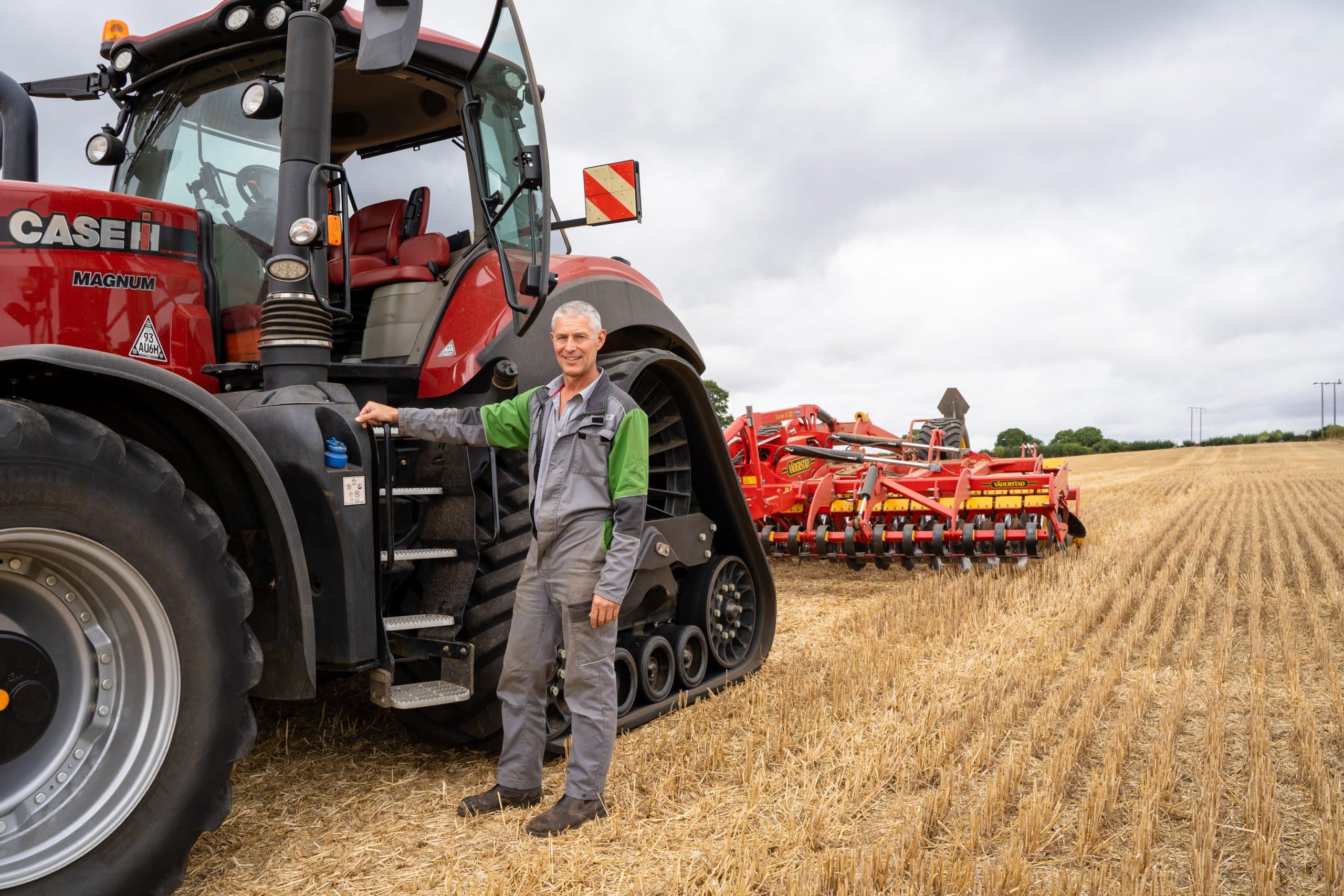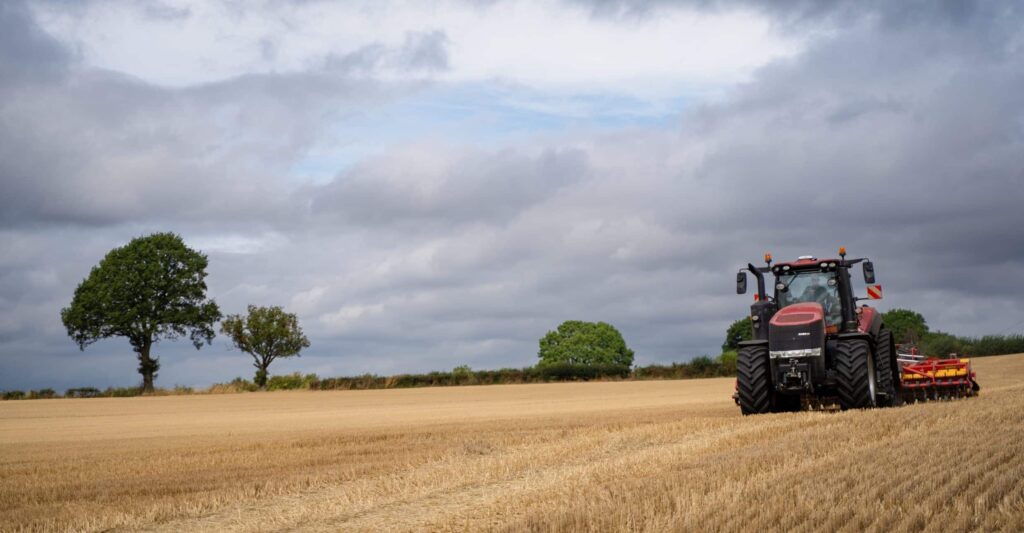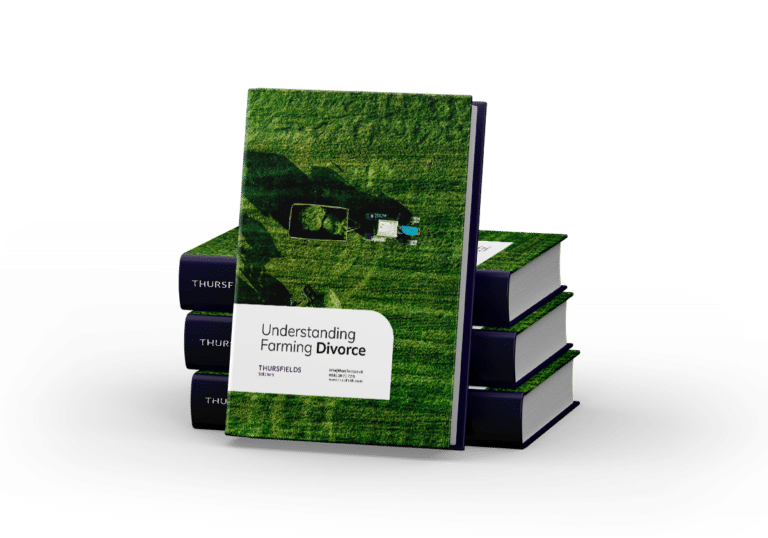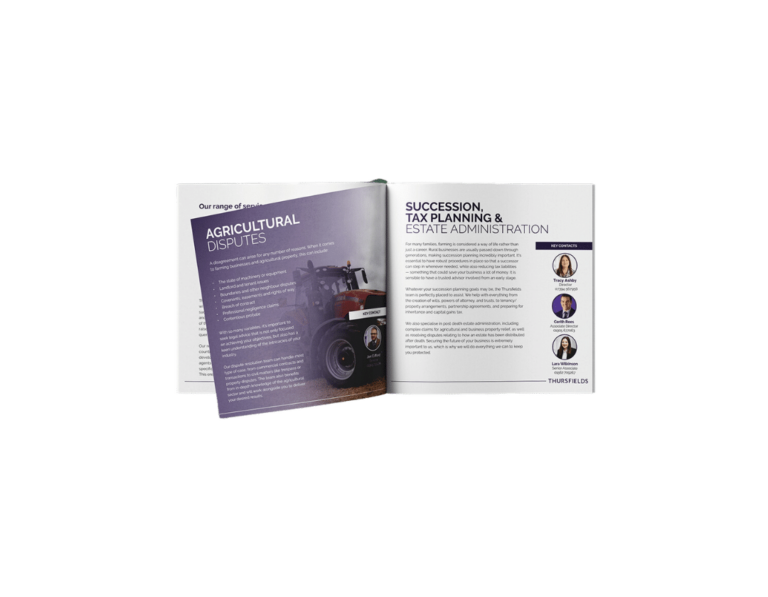A Guide to Divorce in Farming Families
While separations are often challenging, divorce in farming families can be even more difficult to resolve. Farming divorce cases not only have to address the usual child arrangements and financial settlements, but they usually also include high value assets, complex trusts, and inter-generational business interests.
Understanding the key features in farming divorce cases can be complicated and farms often are family assets through generations which need to be understood. Often consideration needs to be given to the type of farming that you undertake and the ties and restrictions that also can be imposed, or potential opportunities such as planning.
Why Divorce in Farming Families can be Complex
‘Typical’ divorces often involve dividing major assets such as property, pensions, and other high value items. Farming divorces cases involve all these usual factors, as well as considering farming partnerships and the interests of other family members. Families will often pass rural businesses down between generations, making inheritance and protecting land a potentially important feature to consider.
The most complex factors in a family farm divorce include:
- Liquidity: It’s common for much of a farm’s value to be tied up in assets, with minimal income. This means that livestock, equipment, and the actual land itself might need to be valued.
- Inheritance: Even if you inherited the family farm, this does not exclude it from being classed as a matrimonial asset. If both partners have worked on the business, it can be even more difficult to address this aspect of farming and divorce.
- Trusts: It’s common for farms to be placed in trusts for tax purposes. This type of arrangement might include other family members, or multiple owners, which can complicate inheritance rights.
- Tax: Dividing assets is an important feature of divorce in farming families. However, doing so can have tax consequences. For added security, this should be addressed by a law firm that uses tax specialists.
Because there are so many unique factors in farming divorce cases, it’s important to seek advice from solicitors who specialise in agriculture.

The Main Factor in Family Farm Divorce
A number of essential factors need to be addressed when considering farming and divorce. You should start with the valuation and ownership of assets, before also considering the impact of inheritance planning and/or trusts. This will lead to tax considerations as the process works towards a settlement.
You will also need to address the income of each spouse and how much revenue is generated by the farming business. This includes establishing the contributions each party makes to both the agriculture enterprise, as well as the wider marriage. The welfare of any children or dependents — including living arrangements and schooling — should also be seen as a priority.
In some circumstances, a pre or postnuptial agreement may be in place. While not strictly legally-recognised in the UK, this type of arrangement can be referred to by the courts, so may prove to be useful. If entered into freely by both parties and without any hidden assets, it may be fundamental in finalising a settlement.
Farm Valuation and Division in Farming Divorce
Valuation is a necessary aspect of most family farm divorces. If you’re looking to value your farm, you’ll need to include physical assets, such as land, buildings, and machinery, as well as intangible assets. These often include trademarks, intellectual property, and commercial leases. Accuracy is vital, so you should always pursue a professional valuation where possible.
Once the farm has been valued, there are a few ways to divide it. These include:
- Outright Sale: Putting the farm on the market and deciding how the proceeds will be split once the sale is finalised.
- Buy Out: To retain control, one spouse might choose to buy out the other’s share. Alternatively, they can ‘trade’ other high value assets to buy the other party out
- Transfer of Ownership: One party could transfer ownership of a plot of land to the other
- Ownership: The two spouses may decide to manage the estate jointly through a partnership or limited company
You can read more about farm divorce settlements in our collection of legal insights and case studies.
How to Protect the Family Farm in Divorce
There are a few options for protecting the family farm in divorce cases. Pre and post-nuptial agreements are one possibility, as is ring-fencing any trust or inheritance to exclude them from the matrimonial pot.
It’s also useful to keep accurate and up-to-date records of contributions made towards the farm as an enterprise. In farming divorce cases, it’s common for courts to evaluate how much each party has contributed towards the enterprise, as well as what each person needs to maintain financial stability. Keeping track makes it much easier to determine the level of involvement of each spouse. Finally, with so much at stake, you should always seek appropriate legal advice to protect your best interests.
How to Handle More Complex Family Ownership
The subject of farming and divorce can be much more challenging when multiple family members share ownership. If this applies to you, it may be worth considering joint ownership through a partnership or limited company.
Ultimately, the court will look to find a solution that is fair and reasonable for everyone. In some circumstances, it’s possible for all sides to reach a settlement without going to court. Where possible you should adopt a collaborative approach to minimise conflict, reduce stress, and reach a quicker resolution.
Much of this will relate to prior family farm succession planning. If you don’t already have a succession plan in place, this should be addressed as soon as possible.

Thursfields is a Specialist in Farming Divorce
Thursfields‘ experienced agricultural lawyers have a detailed understanding of the rural sector. We know that farming divorce cases often need to address inheritance, commercial matters, trusts, partnership and historical agreements between relatives. A full-service law firm, we offer innovative and lasting solutions for even the most complex cases.
Because no two divorces are quite the same, we specialise in creating bespoke strategies that are built around you. This means we’re equally effective dealing with limited companies as we are safeguarding the future of your estate. Although we prefer a collaborative approach, we recognise that this isn’t always feasible, so can offer robust representation when necessary.
For reliable guidance from agricultural solicitors who prioritise results, contact our team today.
Get In Touch
With Us
Need expert legal advice? Our solicitors are here to help. Get in touch today.




